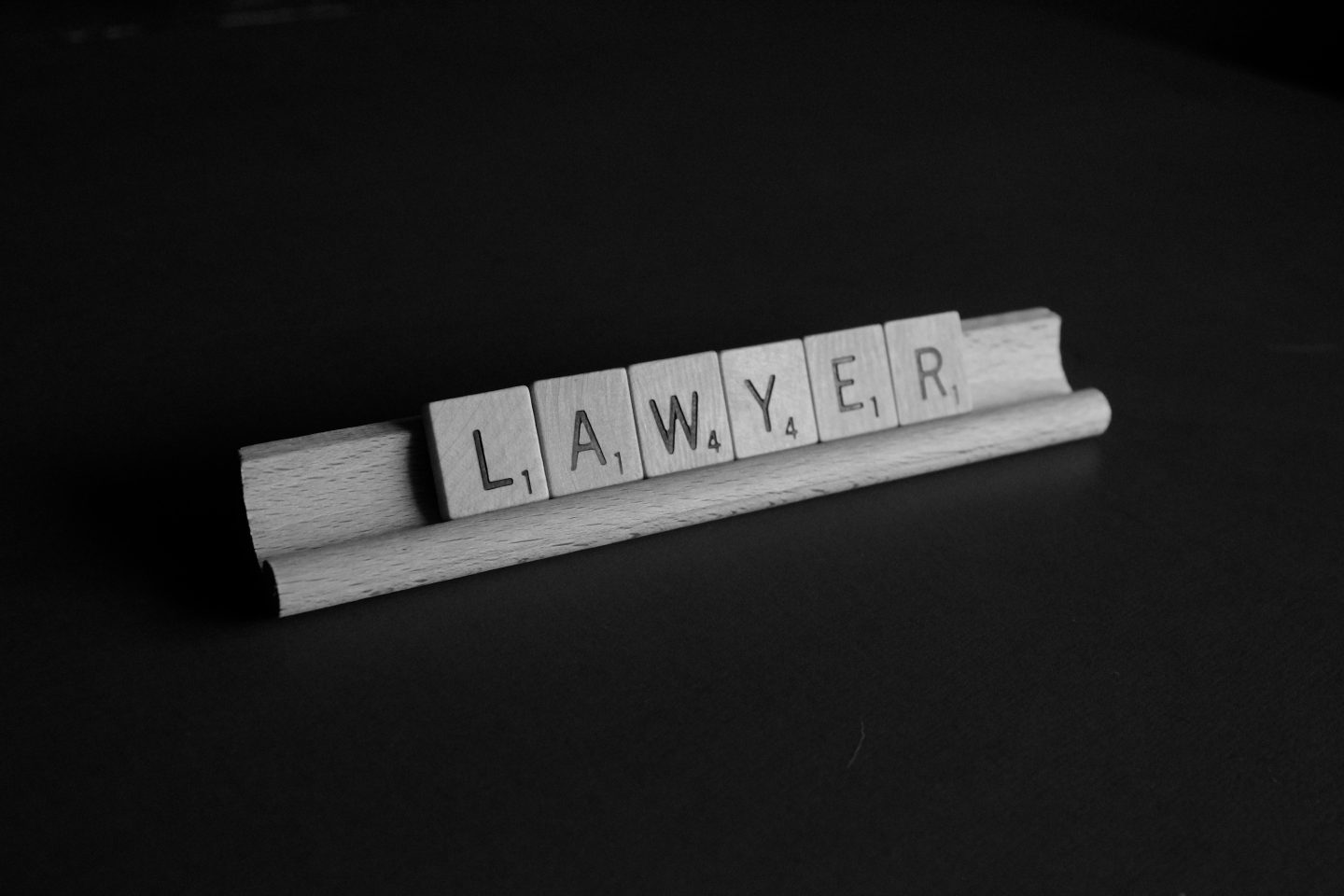
Recently, during a Sunday School lesson with my 13-year-old boys, the topic of prisoners came up for some reason. It was a rowdy conversation, and in an attempt to get the (hyper) energetic boys to streamline our discussion, my co-leader suddenly quipped: “If you guys allow me to finish my sharing, we will have time for Jon to tell us more about his experience going to prison.”
That definitely did not calm them down.
What my co-leader meant to say was that I would share my experience of travelling in and out of the prisons, where I would often go to meet accused persons.
I had only gotten acquainted with the boys earlier this year, and they didn’t know that I was a lawyer by training. After I shared my experiences with them, one of them asked me with great intrigue:
“So, you are a lawyer?”
“Yes, I am.”
“Cool. So … You defend the criminals in prison?”
“Well, they are not all criminals, but I do represent them in their court cases and I help them – yes.”
“Does that make you a bad person?”
Guilty as charged?
I was taken aback.
The truth is that I’ve had this question posed to me many times before, from friends, relatives and at career talks. Within the Church, there are some who are genuinely interested to know how I resolve the apparent dichotomy between being a disciple of Christ and engaging in criminal defence work.
Over the years, these questions are something I’ve come to quietly anticipate. I’ve definitely asked myself similar questions; I had to process it internally before I even committed to doing this work.
But how do you articulate this to a 13-year-old who may not fully grasp concepts such as “access to justice”, “presumption of innocence”, or the “right to counsel”?
Before I knew it, I found myself asking my young friend a series of questions:
“No, I wouldn’t say I’m a bad person. Let me put it this way: Do you know the word ‘advocate’, and what it means?”
“Yes I know; it’s like a ‘lawyer’.”
“That’s right. And the Bible tells us Jesus is our Advocate, yes?”
“Ya, correct.”
“And … we know from the Bible that we need Jesus as our Advocate before God the Father because we are sinful people – bad people. So, in a way, none of us are really ‘good’ people, are we?”
“Yes – we’re sinful.”
“Does it mean that Jesus is a bad person because He represents us, ‘bad people’, as our Advocate?”
“Hmmm … oh, ok. I think I get it.”
Cross-examining the heart
Although I wish we could have gone deeper into the issue, I seemed to have satisfied his curiosity. But there is definitely more to the question of whether I am “bad” simply because I represent a “bad” person.
The truth is that this narrative is largely dominated and shaped by (overly) dramatic storytelling in TV serials and other forms of media, which often leads to misconceptions. Because of these influences, it is not uncommon to hear people asking:
What do you do if your client tells you he’s actually guilty?
Are you supposed to argue that he didn’t do it?
Is it really possible to represent a criminal and do “this kind” of work as a Christian? Are they not fundamentally opposed?
These questions – while thought-provoking and well-meaning – are also questions whose answers are highly fact-specific; there are more nuances and greater intricacies than one would think, in determining guilt according to the allegation/accusation in question.
My young friend’s remark really left an impact on me and posed as a timely reminder for me to re-examine why I do what I do.
What really lies at the heart of (criminal) advocacy and representation for those branded as criminals and accused persons in our society? Where does my own motivation lie?
To begin with, I believe that criminal defence is certainly not the work of turning guilt into innocence. Neither is it the persuasiveness of turning something evidently “wrong” into “right”.
But that same caution must also apply to our pharisaic tendency (mine included) of casting judgment on our fellow human beings and making their sins look graver, darker and dirtier than they really are.
We must take our bearings from the One who represents us before the Eternal Judge.
Criminal defence (or the administration of criminal justice as a whole) is, in my view, the process of ensuring that one gives an account for what one has done – nothing more, nothing less (Romans 14:12; 2 Corinthians 5:10).
For the Christian practitioner, this pursuit of justice must be guided by more than just an innate sense of morality – for even that can fail us. Instead, we must take our bearings from the Greatest Advocate; the One who represents us before the Eternal Judge, before the throne of God.
And we must discipline ourselves to come under His tutelage, to understand what He means by justice and mercy and, in this case, what it means to represent a person as his or her advocate.
The example Jesus set
As I examine the scriptures for myself, I observe that Jesus often dealt with sinful people, even the outcasts of society. He was, in fact, judged for the type of company He kept (Matthew 9:11). As I read through the stories of His encounters with people, I noticed that His quiet caution was often against wrongful persecution rather than wrongful defence.
On a daily basis, He interacted with hordes of “guilty” people and yet, was always tempered in the way He treated them. He showed them dignity; He listened to their stories; He paid attention to their lives and heard what they had to say.
He always saw things in perspective, and yet did not make excuses or give justification for the sin of Man. In fact, He was always grieving over their brokenness.
He knew the sin of the Samaritan woman at the well, but He listened to her questions. He rightfully judged the actions and behaviour of many, and yet was ready to speak a word on behalf of those who were accused: “Let him who has no sin, cast the first stone.” (John 8:7)
He was a Voice to the voiceless – those who could not tell their own stories effectively; those who weren’t permitted to or able to speak up, either by physical, psychological, emotional or socio-economic disability.
In the Eternal courtroom, the case against me is over and need not be heard again.
How does His example shape my own experience of dealing with “criminals”, accused persons, those branded to be on the lower rung of society?
Jesus was God, and He had the power and authority to forgive – we don’t. But what we are called to is to His ambassadorship: “God is making His appeal (to them) through us”, and we are given His ministry of reconciliation (2 Corinthians 5:16-21).
Whenever we think of a courtroom trial, we imagine pieces of evidence being raised – each piece either against the accused or in his defence. Some of us live in this scene daily; moment by moment and thought by thought, we count the pieces of evidence for or against us. We cast judgment on ourselves and on one another.
What the Advocacy and Gospel of Jesus has shown me is not that He presents evidence in my defence – I couldn’t be more guilty of my sin.
Instead, what He’s done is to end the trial once and for all. No longer do we need to count the pieces of evidence for or against us, for in this Eternal courtroom, Judgment was given and there was a conviction.
The debt of punishment has been duly served and paid. The case is over and it need not be heard again – it is res judicata* (*a matter that has been adjudicated by a competent court and therefore may not be pursued further).
Objection, it’s my honour
Jesus held Justice and Mercy in a perfect tension, because He embodied it. No one was made to account for more than they had done, except Him – though He knew no sin, He was made to be sin on our behalf, that in Him, we might become the righteousness of God (2 Corinthians 5:21).
I find it hard to accept that despite knowing this; despite being well-acquainted with my own guilt and shame, I still often find it a challenge to confront the guilt and shame of those who ask for my assistance, and to stand in the gap for them when I know what they have done.
But is that really the issue here?
We, too, know what we have done. We didn’t deserve an Advocate, but we got it. We didn’t deserve to speak, but Someone spoke up for us: “For all have sinned and fallen short of the glory of God” (Romans 3:23).
Jesus held Justice and Mercy in a perfect tension, because He embodied it.
I can only count it my joy now, to be in position of similarly being a voice to the voiceless, to involve myself in learning to give dignity to someone by listening to their story, hearing what they have to say about what they have done and why, and guiding them in a journey of learning how to give a proper account for what they have done and to face up to it.
In this administration of justice, I fight for them because I take the example of One who “fights for me and shields my soul eternally”.
And I can only pray that as I do so, I am living out the ministry of reconciliation and demonstrating the Good News that while we must pay the price for what we have done under our human justice systems, there is also a debt owed under a heavenly justice system, and it is one that we can’t afford but which has been paid in full on our behalf.
We are an independent, non-profit organisation that relies on the generosity of our readers, such as yourself, to continue serving the kingdom. Every dollar donated goes directly back into our editorial coverage.
Would you consider partnering with us in our kingdom work by supporting us financially, either as a one-off donation, or a recurring pledge?
Support Salt&Light
